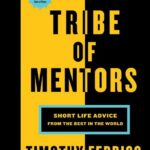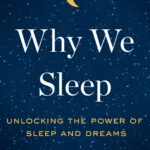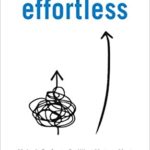Reading Time: < 1 min I’ve shared a few times on here how good decisions can have bad outcomes, and vice-versa, but that only really counts if you know what your desired outcome is. In that post above, the desired outcome was clear — the Seahawks wanted to score a touchdown. At other times, though, the outcome can be a […]
Health
6: What is an unusual habit or absurd thing that you love?
Reading Time: < 1 min Today we’re on the sixth question that Tim Ferriss asked people in his book “Tribe of Mentors” (you can see all of the questions here): What is an unusual habit or an absurd thing that you love? Of the 11 questions that he asked, there were only two that I didn’t find anything highlight worthy […]
Why We Sleep
Reading Time: 3 min I just finished the book “Why We Sleep“, and while there weren’t any stunning findings in there, there were a lot of little things that I never knew before. I’ve always considered sleep to be a “let your body rest, and your mind does some REM stuff too”, but it turns out the mind part […]
Emulating the values of Charlie Munger
Reading Time: 2 min I finally finished reading “Poor Charlie’s Almanack” (which I first mentioned last month) and it was fantastic. I’ve heard a lot about Charlie Munger over the years, but the depth of this book was amazing. The book technically wasn’t written by Charlie, but it was his full of his content — text of talks and […]
How long to recover?
Reading Time: < 1 min When reading the book “Effortless” by Greg McKeown, he made a big push toward encouraging us to take small steps. It’s not unlike what I’ve talked about before with One Percent Can Make a Huge Difference, but he took it a bit further, saying: “Do not do more today than you can completely recover from […]
My favorite Supernatural workouts
Reading Time: 2 min I mentioned back in May that I was really enjoying the Supernatural VR app for workouts, and I haven’t slowed down. Since that time I’ve done 270 separate workouts, with each one lasting around 15-20 minutes. They have roughly 800 workouts available right now, with more added every day, but I tend to gravitate back […]
All-nighters are for people who don’t know how to plan
Reading Time: < 1 min There are times when most everyone has needed to pull an all-nighter at one point or another. However, if you have to do it regularly it’s a sign of poor planning. In a recent post, Ryan Holiday summed it up nicely: Sleep is one of the most important parts of my work routine, period. All-nighters […]
Balance in any given day is overrated
Reading Time: 2 min Balance in life is always important. Balance between exercise and rest. Balance between work and play. Balance in eating and sleeping. However, none of that means that every single day should balance out perfectly. Consistency is worth a lot, but looking at balance across your life in terms of weeks or months is often more […]
Zwifting along
Reading Time: 2 min I’m sharing this largely because I wish I had known about it a few years ago, so maybe I can save someone else from that. In short, Zwift is an app that puts you in a virtual world connected to your treadmill or your stationary bike. It’s kind of like being in “Second Life”, in […]
My list of daily goals
Reading Time: 2 min A few weeks back I started tracking a list of daily goals. These are separate from any to-do items I might have, and unrelated to anything on my calendar. They’re simply a list of things I’d like to accomplish every day. As of today, it’s a list of four main goals with five sub-goals in […]









